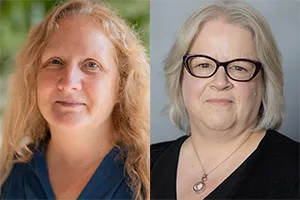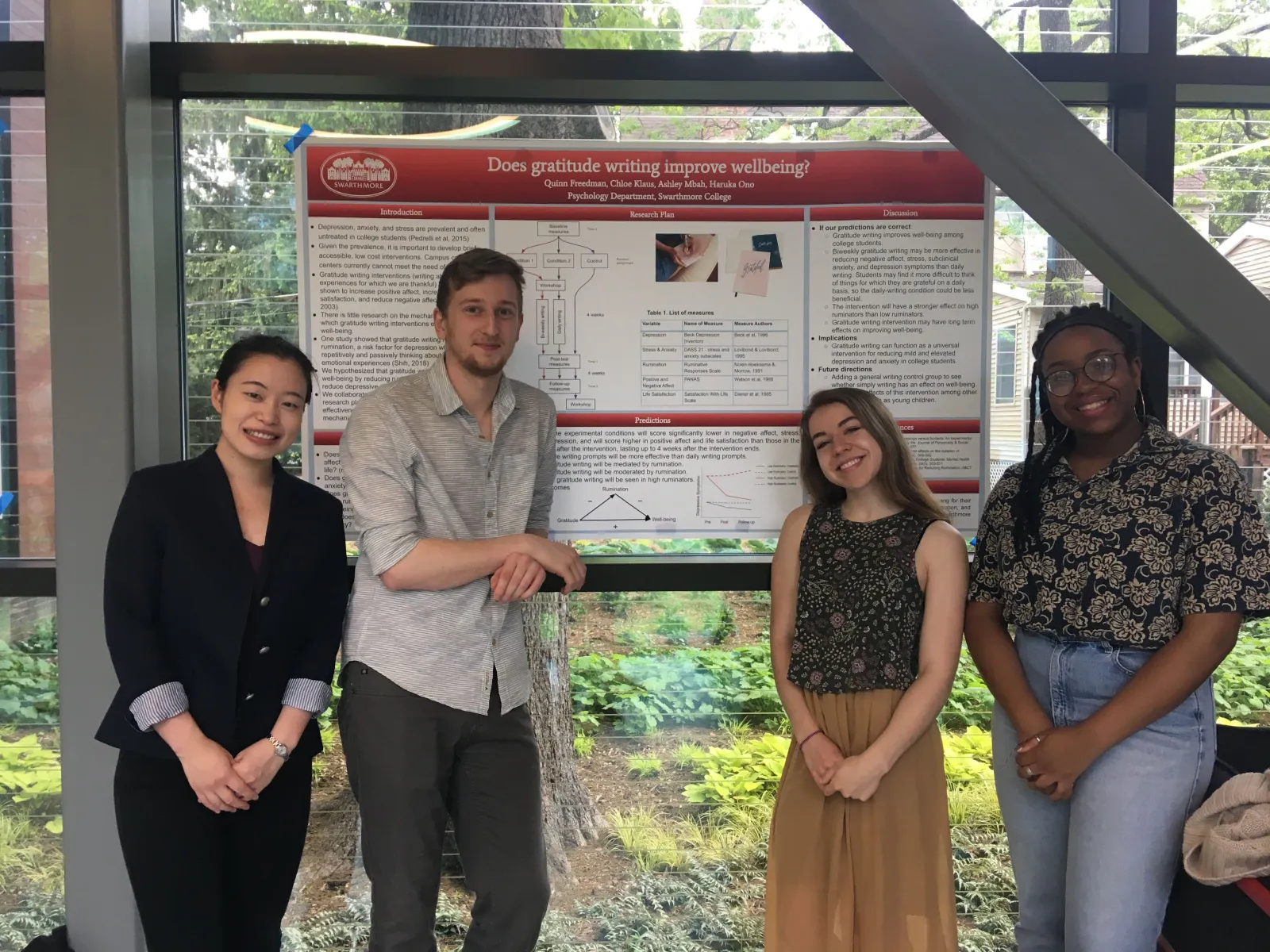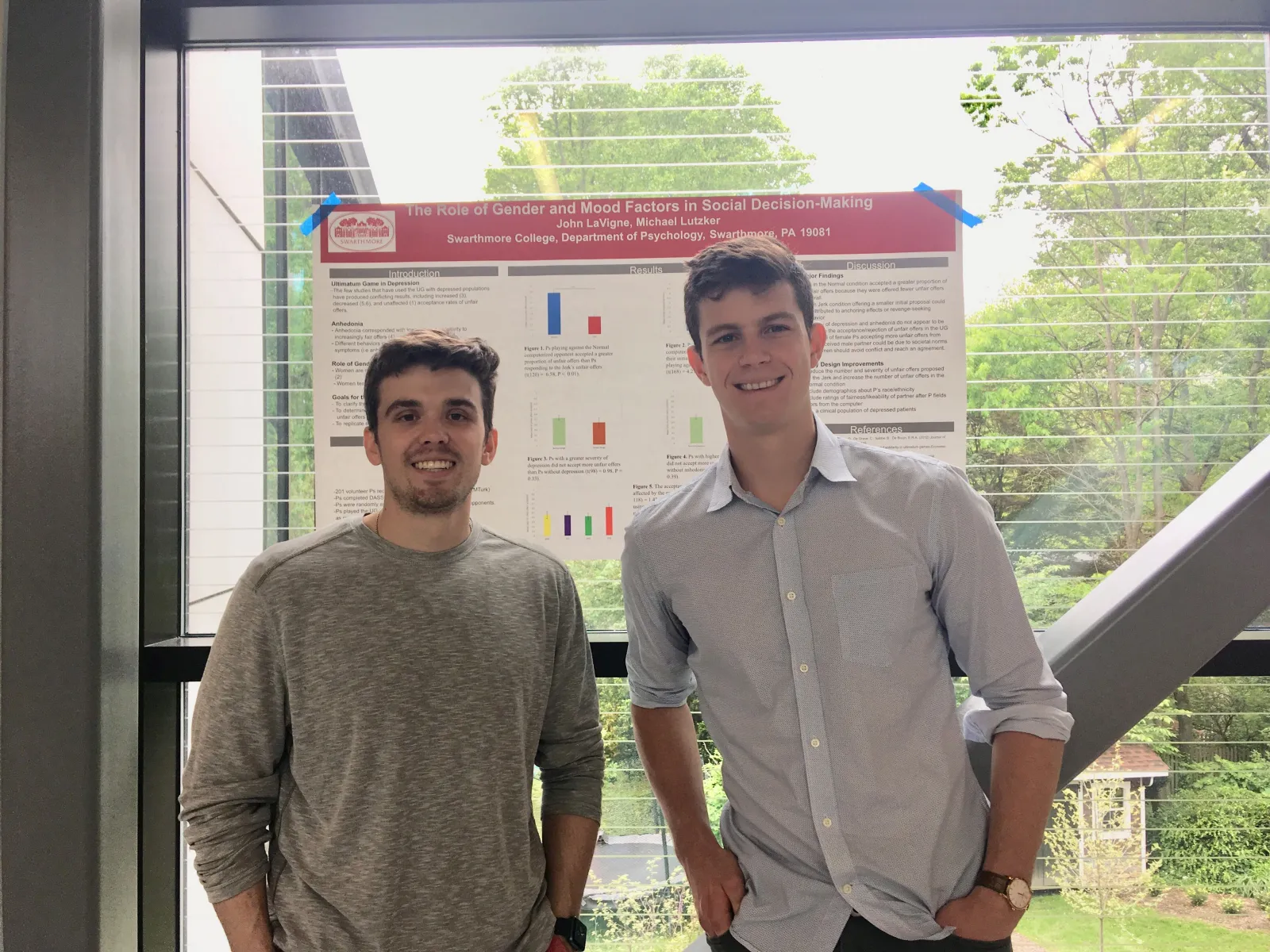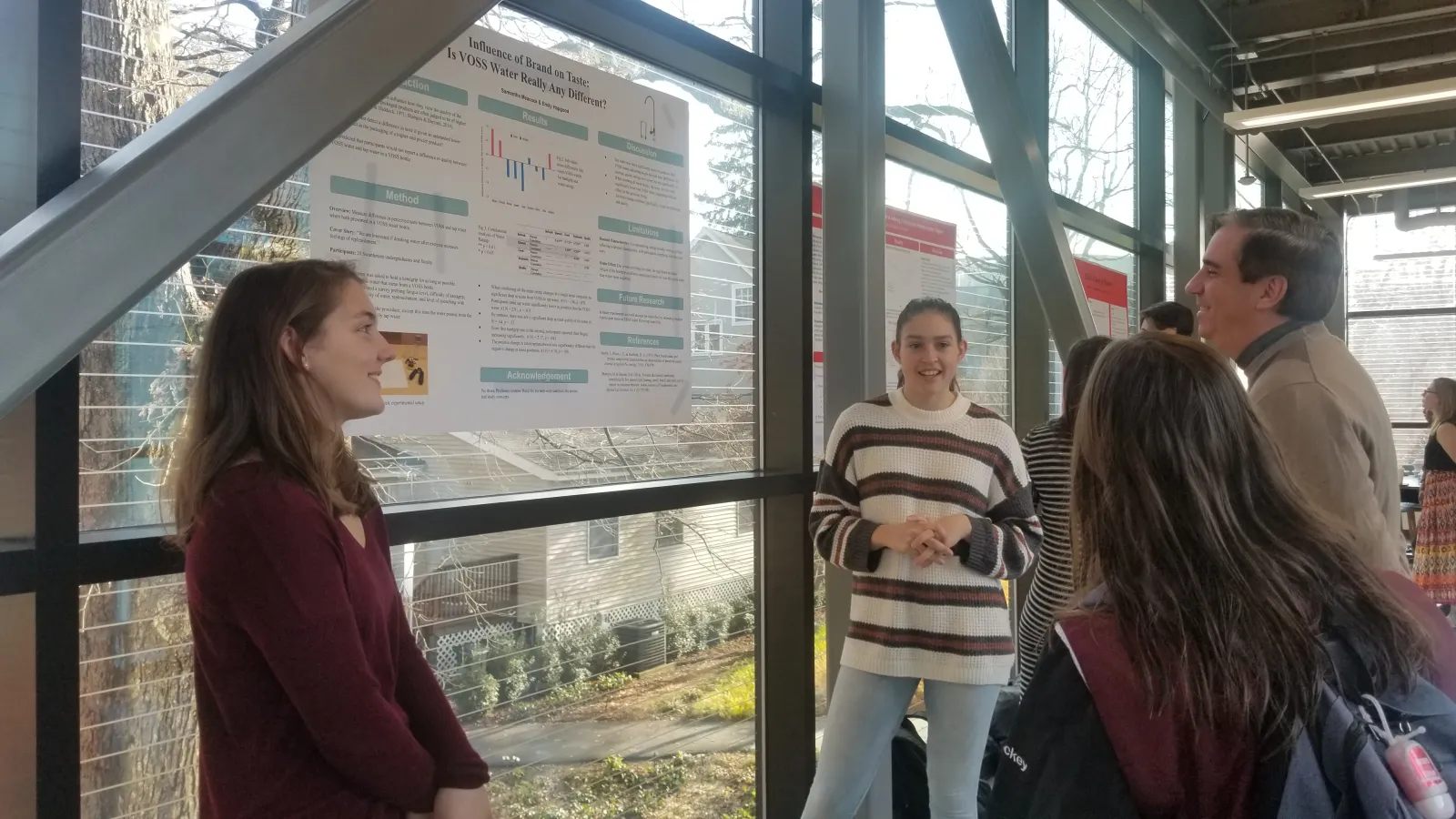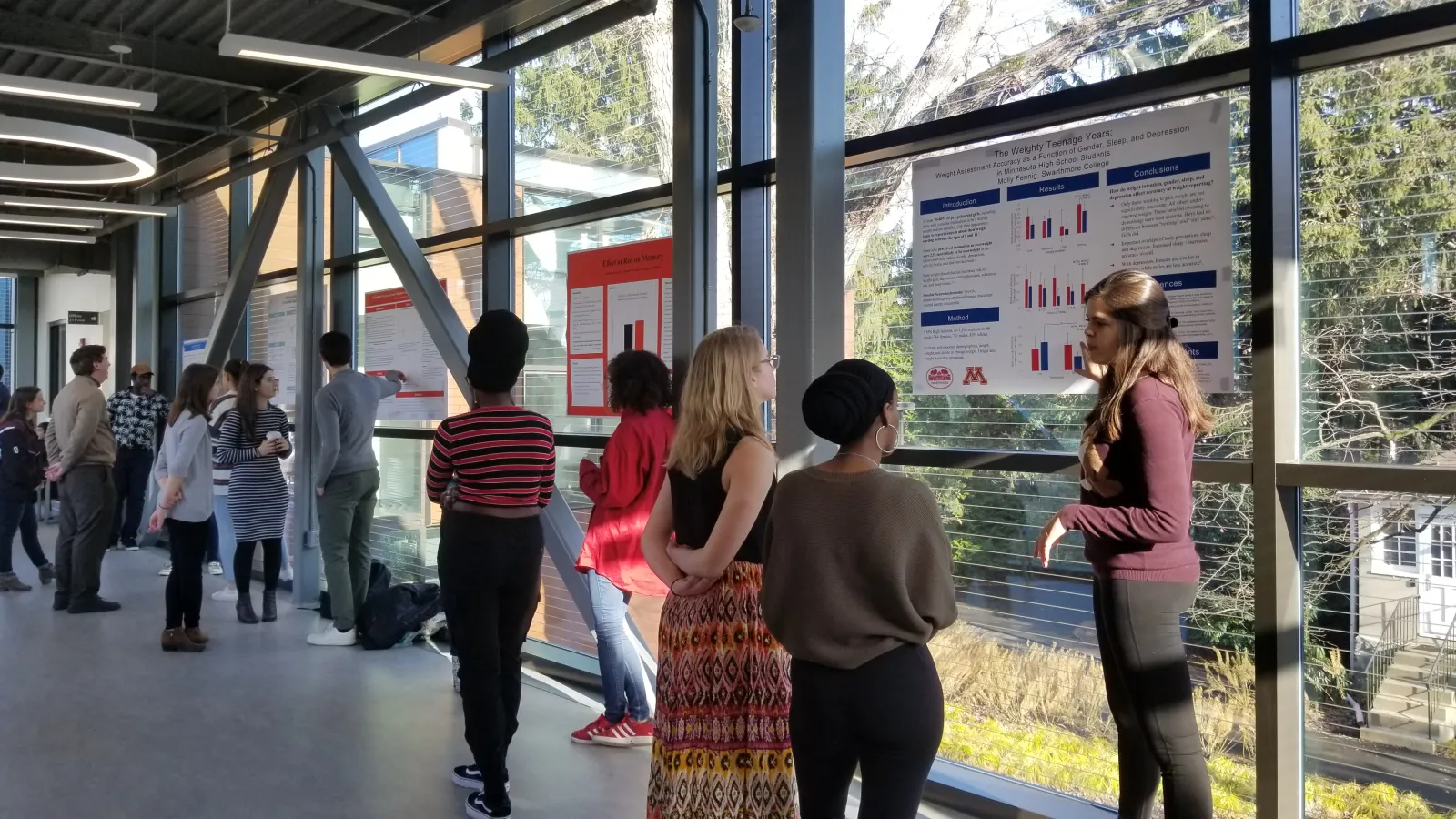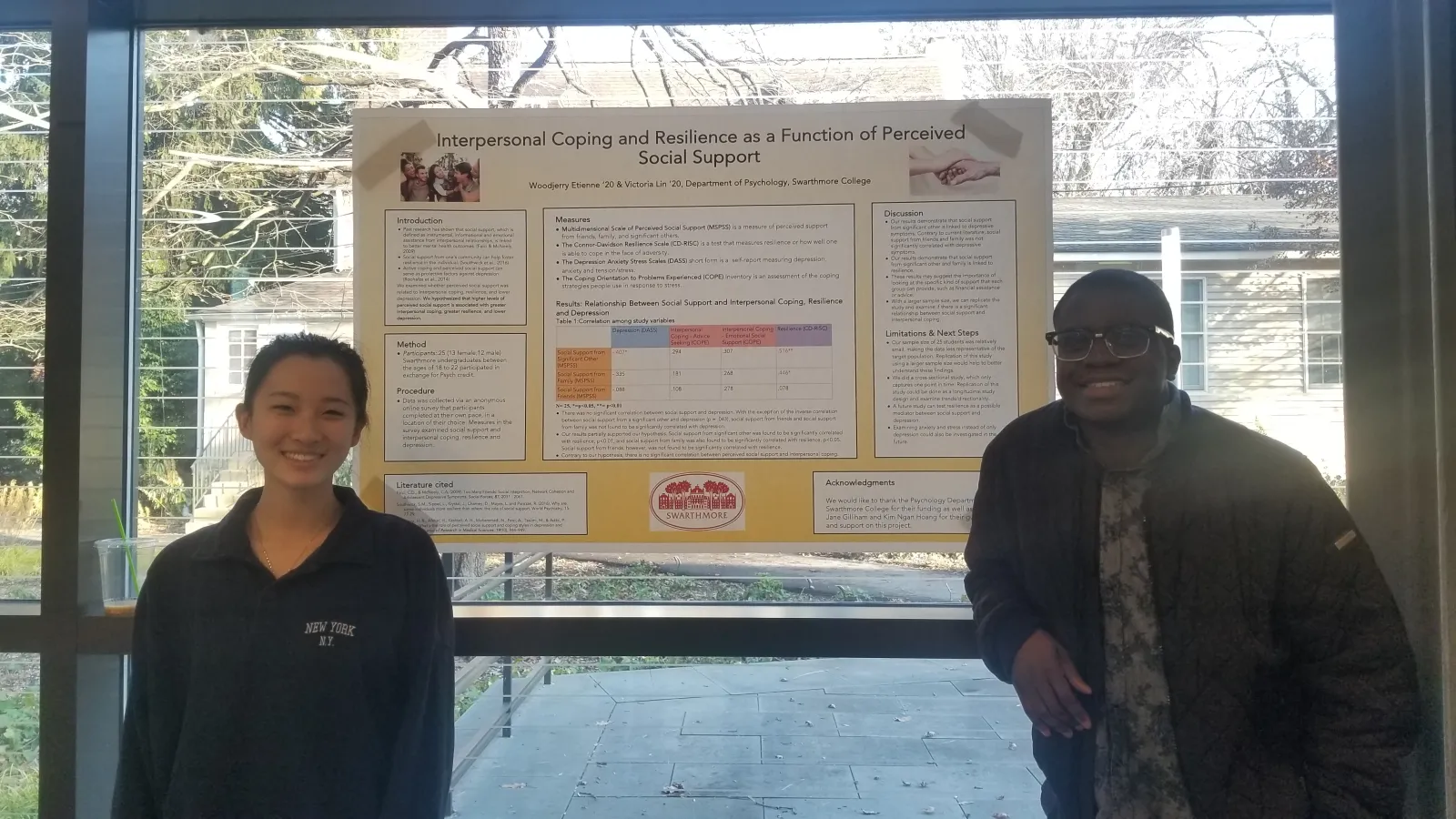Psychology seeks to answer many types of questions:
- What is intelligence?
- How do groups in conflict resolve their differences?
- How is language represented in the brain?
- Why are some things difficult to remember and others difficult to forget?
- How do we choose our friends and lovers?
Swarthmore's Psychology Department has strengths in clinical, developmental, social, cognitive, physiological, and cultural aspects of the field, offering something for every student who is interested in understanding human nature.
Psychologists use diverse approaches to understand human relationships, mental and emotional life, decision-making, and the relationships between language, perception, the mind and the brain.
They explore the development of a person from infancy through adulthood. They study people as thinking, feeling individuals and also as interdependent members within the diverse network of social roles, relationships, and cultural values in which they live. They look at the biological bases of how people interpret, represent, and act on the world around them.
By enriching and deepening the understanding of human behavior, psychologists seek to articulate explanatory principles, and also to develop solutions for interpersonal conflict and means of preventing and treating mental illness and dysfunction.
Students at Swarthmore can engage in research in Neuroscience, Psycholinguistics, Depression Prevention, Cognitive Development, Perception and Action, Self-Control, and many other areas of psychological inquiry.

